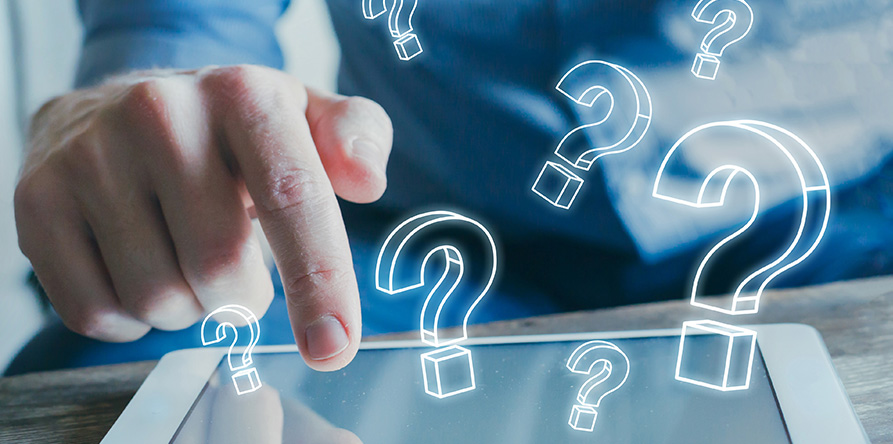
I worked in financial literacy for years, and there are 3 things I learned about money that many adults don't know
Authors: Allison Nichol Longtin
Source: Business Insider
"I'm glad I learned about parallelograms instead of how to do taxes. It's really come in handy this parallelogram season." You may have come across this classic meme around tax time. It really hits home with me — and I'm not alone.
I'm a well-educated person. My parents had the financial literacy, foresight, and resources to put money aside for my education. They started a RESP shortly after I was born, which paid for my first university degree. Completing my undergraduate degree with very little debt to my name meant that I was able to pay for my master's degree on my own.
You can imagine my surprise when I started a new job at a national literacy organization and found that, at the age of 30, I actually knew very little about money management. For something so vital to our success in this world, it's a wonder that money management remains shrouded in mystery for so many of us.
Connecting directly with workshop facilitators and teachers who delivered our financial literacy program to their learners from all walks of life and then managing a portfolio of literacy programs, it was my job to know the ins and outs of our programs.
A lot of my work was around raising awareness of the need for financial literacy and advocating for lifelong learning. I quickly adopted the perspective that literacy exists across a spectrum — you may be highly literate in some areas of your life and weaker in others. Through my work at this organization, I came to terms with my lack of financial literacy and took steps toward improving my money management skills. I learned three key lessons along the way.
1. Money is an emotional and taboo subject
There are certain things in life, often very important things, that most of us aren't taught in school. We pick them up along the way through trial and error. Effective money management is one of those things.
There's shame attached to not knowing something that everyone's supposed to know. Most of us don't learn how to manage our money in school, and we end up ashamed to ask for help.
Working with adult learners and their teachers, I heard variations of the same story again and again — they didn't learn this stuff in school, and they're embarrassed to admit it. The financial jargon, lack of clear communication around financial services, how they work, and the bad behaviors that can result from misconceptions about things like credit, for example, have led many nonprofits to create educational content to help people improve their financial literacy.
There are lots of free programs out there that focus on areas like debt reduction, building your savings, knowing your money rights, and banking basics. If you're looking to increase your financial literacy, whatever your existing knowledge, start by connecting with your bank — many of the larger banks sponsor nonprofits to create and share programs and materials to help you do just that. You can also look into government-sponsored and recommended programs to help you up your skills.
2. There's good debt and there's bad debt — and they feel very different
Yes, it's true: There's good debt and bad debt. In North America, our banking and financial structures are set up to rely on credit. We need credit to buy a house, rent an apartment, lease a car, and, in some cases, to get a job. A good credit score means that you have a history of paying your debt on time. Bad credit means you don't. But in order to build credit, you need a credit card or a loan — something to prove that you can manage your money.
Most adults think that all debt is bad debt. But what about a mortgage? How many people do you know who bought their first home in cash? A mortgage, as long as it's within your means, is generally considered good debt. It's the kind of debt that you pay off slowly and steadily, adding to your good credit and showing creditors that you're a safe bet. Having a good credit score means that more doors are open to you.
I bought my first home just over a year ago, moving from a big city to a small town. My mortgage is a little over half what my rent was for my humble one-bedroom apartment in the city. When I bought the place, I'd been debt-free for nearly 10 years, so it took me a while to come around to the idea that taking on debt was a good idea. My exposure to financial literacy education helped me make the mental and emotional journey toward homeownership by adjusting my views of debt.
Now, bad debt. That's the debt we rack up on credit cards while living beyond our means. Using your credit card to pay your bills, pay for groceries etc., is good debt, as long as you pay it all down to zero at the end of every month. I realize that this sounds pretty straightforward. I'm more than a little embarrassed to tell you that it was news to me when I first started working in financial literacy.
3. 'Paying yourself first' is a pain-free way to save and invest
Another simple yet effective money-management principle I learned was to pay myself first. Following the psychology of money, paying is pain. Every time we pay for something, the pain center of our brain is activated. No, really. So, as a way to bypass this response, one of the best and least painful ways to save and invest is to set up auto-deposits from your bank account each month in a dollar amount that still allows you to cover your basic needs. If the money comes straight out of your account each month, it's like it never existed, like it was never really available to spend.
With each new change to my income, I adjust my monthly auto-deposit amounts, one to my home renovations savings account and the other to a brokerage account. When I left my permanent, salaried, nonprofit job last summer to go freelance, I reduced the monthly amounts and have been gradually increasing and adjusting them as I get a better sense of my average earnings.
Money is inherently emotional. And it's a taboo subject in most Western cultures, so the odds really are stacked against us if we don't start teaching financial literacy in schools and getting comfortable talking about something so important. As a writer and educator, I continue to work in and advocate for literacy. Helping adult learners increase their financial literacy has helped me to increase my confidence and learn how to trust myself to manage my money.
This article was written by Allison Nichol Longtin from Business Insider and was legally licensed through the DiveMarketplace by Industry Dive. Please direct all licensing questions to legal@industrydive.com


